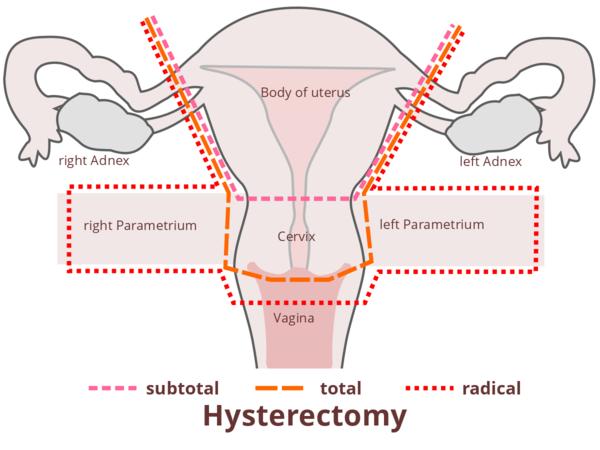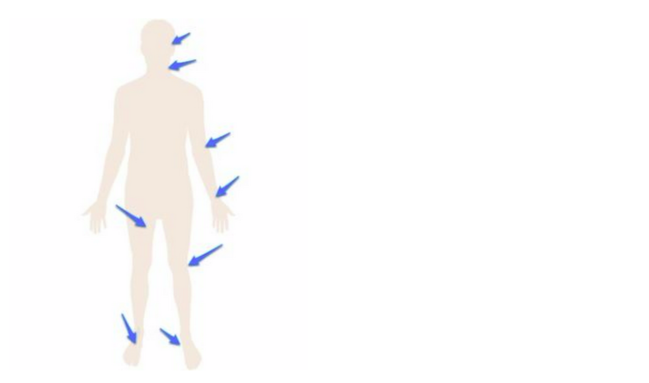Surgical Menopause – getting into your Menopause too early
Four months ago I had my ovaries removed. It was a shock. One minute I was fine, the next I was doubled up in pain, certain that my appendix was rupturing. A quick trip to hospital and an ultrasound showed a large tumour on my ovary. I asked if it was cancerous. The Emergency Department Consultant could not tell me. The only specialist who was not on holiday could not see me for 10 days. Why do all specialists go on holiday at the same time? It was the same when my sons needed grommets. They were all away. Shouldn’t doctors have to stagger their holidays like any other professional?
My initial meeting with the specialist was not positive and I thought about seeing someone else, but I was not keen on a 3 month wait. I was frightened that I had cancer, so I went with the first person available.
The appointment started badly when she asked why I was there. I told her that I have a tumour on my ovary and was promptly told that “we don’t call it a “tumour”, it is a “mass””. I knew at that point that it was going to be a rough road. Every other doctor from the ED Consultant through to my GP called it a tumour. There was even an arrow pointing to it on the ultrasound scan which is marked “tumour”. However, I was told firmly that I was not to call it that. I don’t know if this was supposed to make me feel better, or happier or reassured. Either way it achieved nothing and I spent the following week looking up ovarian cancer websites and trying to prepare myself for the worst. The specialist said she could operate a week later so I filled in all the admission paperwork and then hit the chocolate. It did nothing for my waistline but it made me feel brighter. Where there is chocolate there is hope.
I arrived at hospital the following week, petrified and with a bag full of chocolate to get me through the recovery in hospital. Green and Blacks I love you. I will buy shares. It was only your milk chocolate that got me through the following weeks. If you noticed a profits spike in April and May, that was down to me.
After waiting in reception for 2 hours I was taken to a ward full of people waiting to have gynaecological surgery. I was apparently third on the list. Why I had to be there at 6.30am when they did not intend to operate before 11am, beats me.
Once I was in a gown and tucked up in bed, the nurse looking after us all decided we all needed to have an enema. I think she was bored. I was expecting a tube up my bottom so was quite relieved when it just turned out to be a tablet. A modern enema involves a tablet being stuck up your bottom and being told to hold it as long as you can before you race to the toilet. There were 8 of us waiting for surgery. The nurse gave us all an enema within minutes of each other. There was one toilet on the ward. The outcome was predictable to everyone except the nurse administering the tablet. I learned a lot of new yoga positions as I was standing in queue outside the one toilet, trying desperately to hold on. There was no commode available. As I was wheeled off for surgery, I hoped the nurse with the smart idea was the one to have to clean up.
I woke up in my own room after the surgery. I was hungry but the nurse told me that I had to be on clear fluids until my bowel had moved. That proved to be a long time. Why did they give me an enema in the first place? Chicken consommé does not help you have a movement. If it goes in liquid, it comes out liquid. I decided that they were just malicious. Three days of chicken consommé and lime jelly later, I was ready to strangle someone, so I lied. I told the doctor I had been to the toilet. The food ban was lifted. I ate chocolate. It was good, really good. In fact it tasted like manna from heaven. My 6 year old saw it on offer at the local supermarket. My husband and son emptied the shelves. My cupboard overflowed…There is no painkiller as effective as a large bar of Green and Blacks Organic Milk Chocolate. Just liquefy it and hook me up to a drip!
I knew that having my ovaries removed would send me into surgical menopause. What I did not know was how quickly it would happen. The various websites were quite vague about it. I knew that I would need to go on to HRT until the age that I would naturally go into the menopause (generally assumed to be around the age of 51) to replace the oestrogen that was no longer being provided.
I thought that I would be given HRT immediately. Apparently not. The specialist decided it would be good for me to experience what menopause was like before allowing me to have the oestrogen patches. The hot flushes kicked in 2 days post-surgery. I endured 5 days of hot flushes and night sweats before discharging myself against doctor’s orders. Only then did she agree to give me the patches. She told me that women should be able to deal with menopause when it happens, whether or not that is down to surgery. I beg to differ.
I did wonder why I, as her patient, had to suffer because of her beliefs about HRT. It made me wonder how much else of her advice was her opinion, versus official recommendations. I went to see my GP five days later and she was brilliant. When I told her I was still suffering hot flushes and night sweats, she upped my dosage of HRT, saying that nobody needed to suffer unnecessarily. The hot flushes and night sweats stopped within 24 hours. My doctor is the best!
It was a long five weeks until I found out I did not have Ovarian Cancer. The specialist forgot to email my GP with the results, so she found out from me that I was in the clear.
The HRT patches work well. I have had to put an alarm in my phone to remind me to change them twice a week, but apart from that it is all fine. My tummy is squidgier than it was and it was a few weeks before my sons were able to bounce on my lap again. However, I have recovered well and am now back to exercising and back on motherly duties again. All credit to my in-laws who moved in and looked after the children for me while I recovered. All credit to my eldest son who reminded my husband to keep resupplying the chocolate.
While this has been a long story I think the main points I wanted to make are that if you are told that there is something wrong that may be very serious, read around. Don’t just read around the subject, read online reviews of the hospital and the specialist you are seeing. I wish that I had, as the same comments I have made above, had previously been made by others having similar surgery at the same hospital, with the same consultant.
Be willing to look further afield for a consultant and a hospital to have the surgery done at, if this is an option where you live. I looked within a 10 mile radius of my home, at 3 possible hospitals and I based my choice purely on opening hours, not on online reviews. If I had gone as far as 30 miles, I may have had a different experience. Finally, read up on the after effects of the surgery, any follow up medication you may need and the pros and cons of it. Use reputable websites, such as those of national or international charities specialising in your condition. Go into your doctor armed to the teeth with information, don’t just take the specialist’s word for it. Knowledge is power and power is confidence. If you are confident of your information when you face your specialist, you may have a lot better experience than if you accept without question, the information that specialist gives you. Finally, take to the hospital whatever it is that will make you feel good afterwards, as a quick boost every now and again, can only be a good thing for your recovery.

